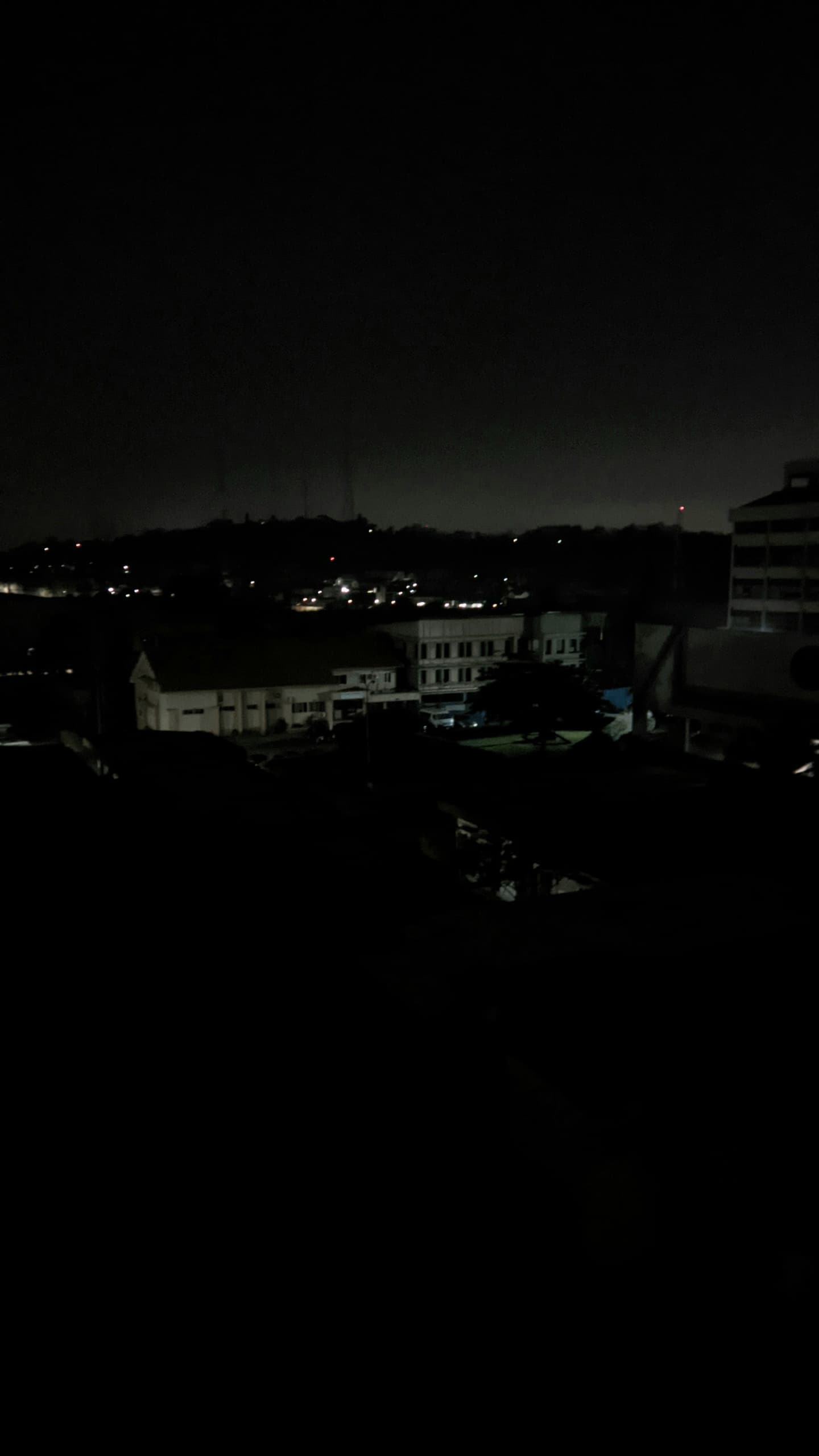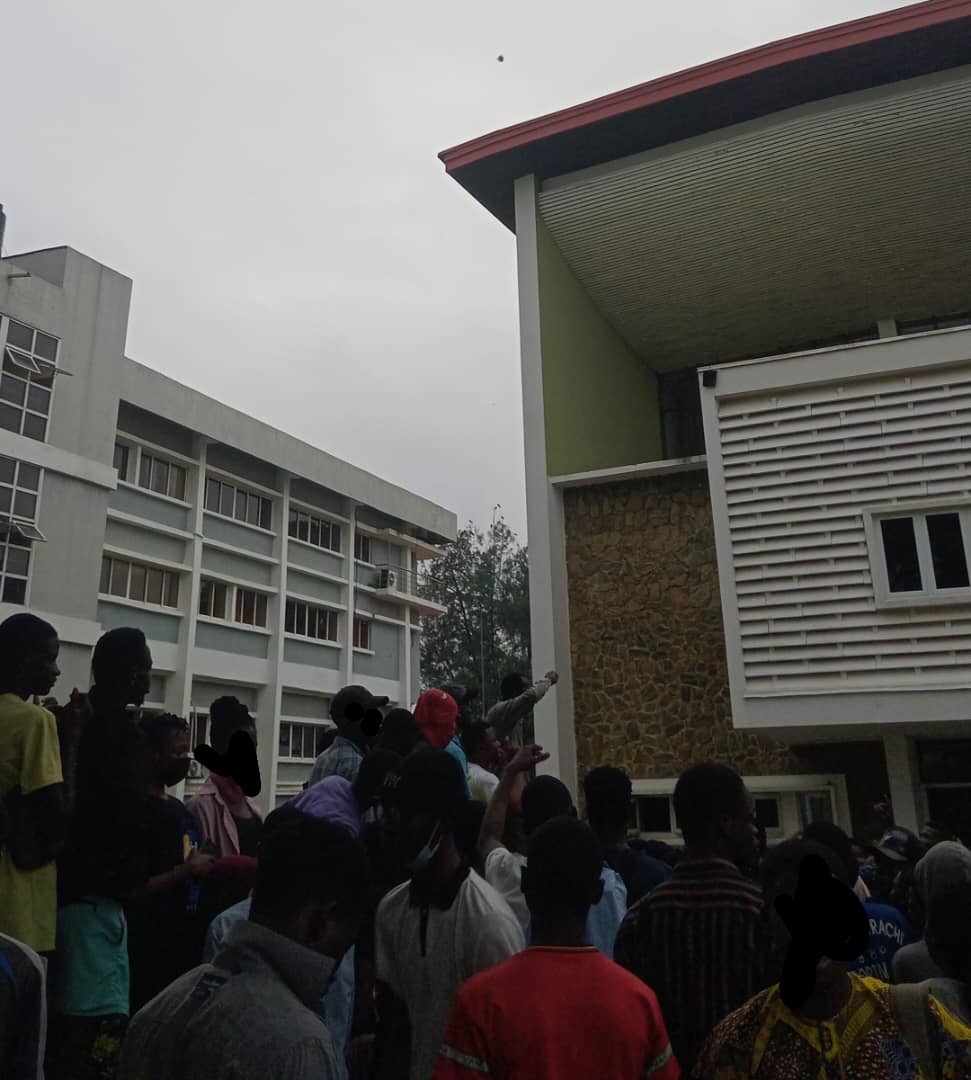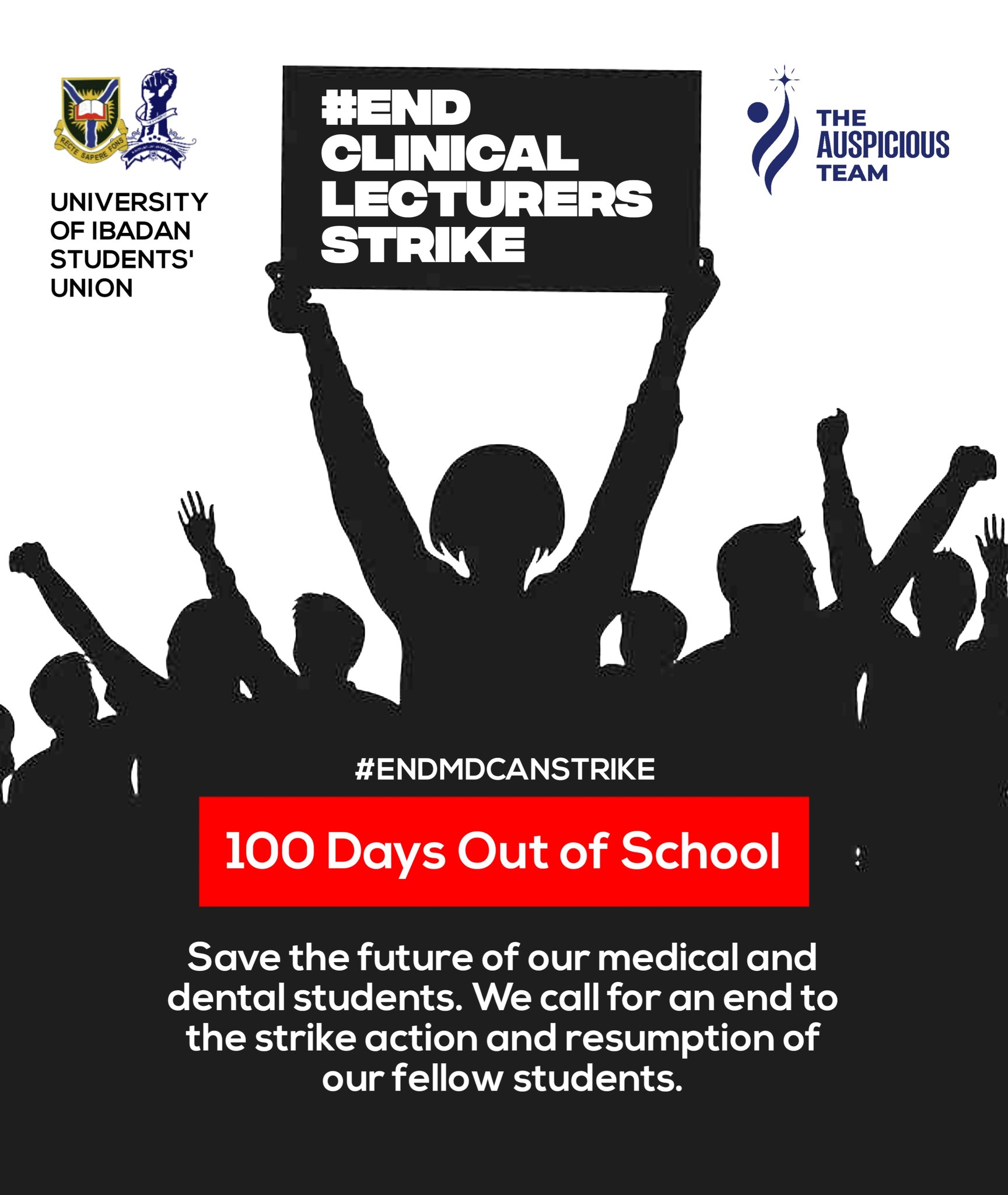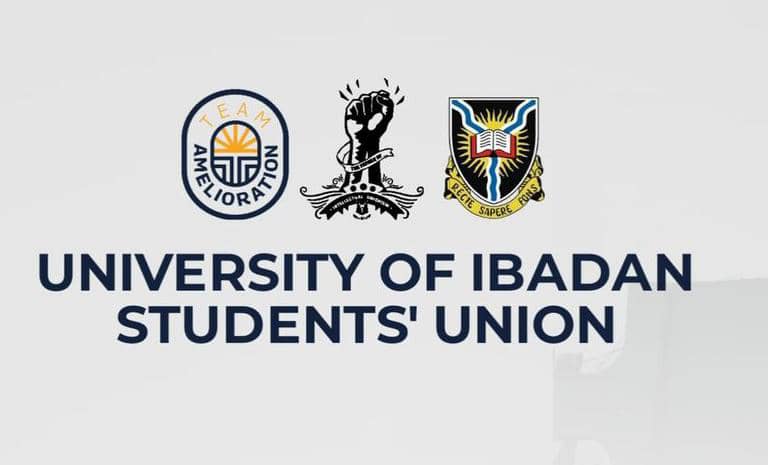Electricity: The Luxury Nigerian Universities Can No Longer Afford

When the national grid was shut down during the latest showdown between the Nigeria Labour Congress (NLC) and Tinubu, many Nigerians were initially not perturbed. After all, the national grid had been reported to have collapsed six times in the same number of months, and several hours without electricity was a hallmark of the Nigerian experience. But as the nationwide blackout crossed the 48-hour mark, people began to panic. Businesses recorded tremendous losses; The Domestic Airports Cargo Agents Association (DACAA) alone reported a loss of 7 billion naira. Many complained bitterly; how could the NLC claim to be fighting for the people by increasing their suffering?
In the University College Hospital (UCH), that blackout was just like any other one. In fact, it was probably one of the shortest that had been experienced since the last year. The Strike was called off, and for other Nigerians, things went back to “normal”. Except for Nigerian students. On X, hashtags began to trend; #LUTHISDARK #UNIBEN. At first it appeared to be two isolated cases. In UCH, students were surprised to find out that their mates in other universities were also facing blackouts. And while some were happy to see that people were finally speaking up, others wondered what the fuss was; after all they had suffered numerous blackouts in the past year, and no hashtags trended.
But it was not just LUTH, UNIBEN and UCH that had been forced into darkness. Several other federal universities and teaching hospitals were in a similar circumstance, including University of Ilorin, University of Abuja, University of Jos, Ahmadu Bello University, University of Maiduguri and Aminu Kano Teaching Hospital. In a PUNCH article published on the 3rd of July, most of these institutions had reportedly been disconnected for varying lengths of time due to the enormous bills they owed to electricity distribution companies (Discos).
The Cost of Electricity
In the record three-week blackout that turned UCH into a ghost hospital, the Ibadan Electricity Distribution Company (IBEDC) claimed that the first tertiary hospital in the country owed an astounding 495 million Naira. The hospital management agreed that some debt had been inherited from the past administration, but it was nothing close to the amount being quoted by IBEDC. After several days of back and forth—in which the IBEDC insisted on an upfront payment of 250 million naira—both sides found a common ground. Light was restored to the hospital, on the condition that the management stick to the payment plan agreed on.
The story is not unique to UCH. Nigerian universities have a long history of owing Discos. Both University of Nigeria, Nsukka, and Obafemi Awolowo University, Ile-Ife were plunged in darkness in 2021 over non-payment of bills. However, the recent simultaneous blackouts across numerous universities appear to be linked to the astronomical tariff rise (over 300%), since a large part of the electricity subsidy was removed by the Tinubu administration. It did not help that federal universities had funding withdrawn. Around the same time the electricity tariff increased, the Abuja Electricity Distribution Company (AEDC) gave an ultimatum to disconnect the Presidential villa and other government parastatals as they were owing billions in electricity bills. This was quickly offset by the President, even as his Special Adviser on Information and Strategy disclosed that the amount being demanded by AEDC was more than three times what was actually owed.This is eerily similar to what played out in the UCH scenario. Which brings us to the question, how do the Discos estimate these bills? Why are public institutions accumulating such large bills, and how can we expect them to pay up, if even the Presidential villa couldn’t completely pay their exorbitant bills?
For LUTH, the problem began when they were migrated to Band A this year, the same band whose tariff increased by over 300%. From a logistics perspective, the migration made sense. As one of the busiest hospitals in the country, about twenty hours of electricity per day (which Discos claim to provide on Band A) is only appropriate. But while LUTH, and other hospitals and universities require electricity almost round the clock, to demand that they shoulder the new tariff alone is to attempt to run them to the ground.
Some universities mandate students to pay an electricity levy. University of Ibadan in particular introduced a utility levy last session. But shifting some of the cost to students was apparently not enough to keep the lights on in universities, as students continued to battle unexplainable power cuts. At the height of its longest blackout, the UCH management called for donations from well-meaning individuals to pay off their debt and reconnect the hospital. The College of Medicine, UI has been depending on her alumni for funding numerous projects. While no one can discount the contribution of alumni and philanthropists to the running of public institutions, depending on them primarily for funding is a recipe for disaster.
Grass under Two Elephants
While the forces in higher places battle, the grass underneath suffers. Residents of Alexander Brown Hall (ABH) are no longer strangers to lugging power banks, extension boxes, lamps and laptops around the hospital in the hope of finding a place to charge their devices. At each successive blackout, queues grow endlessly at the Hall’s A block water tanks, with some choosing to walk several metres to the mosque or Blood bank instead of queueing. Not even during career-determining MB examinations are medical students spared this agony.
ABH residents tend to feel removed from the main campus. As if to confirm this sentiment, Management did not acknowledge their condition several days into the blackout. Even the erstwhile Students’ Union President (Samuel Samson Tobiloba)—a medical student himself—turned a blind eye until he was called out on the silence. He apologised, claiming that he could not have addressed Brownites because he was not aware that the Hall had a central Whatsapp group. The student body closer to home—the UCH Students Association (USA)—tries to fill the gap, but beyond sending Whatsapp broadcasts “calling for calm”, it can do almost nothing to alleviate students’ struggles.
Contrary to what they may think, the student doctors are not isolated in their struggle. In UI, numerous power cuts have been experienced since the beginning of the year. Perhaps it is inaccurate to count from the beginning of this year. Years back, visitors to UI at night during blackouts may have heard the loud cries of “Olayinka o” from male hostels, as students summoned the erstwhile Vice Chancellor to bring back light to the university. Power cuts are notoriously timed with exam periods, when students are already stressed with preparations and pressed for time. Even when there is apparently no disagreement with IBEDC, some halls within the campus receive much less power supply than the rest of the school. One wonders on what metric, this decision is based.
A blackout on a Nigerian campus is very different from the pesky NEPA power cut at home. Time comes to a standstill. Many who use their phones or laptops to read can no longer do so. Some choose to stay away from school, seeking places to charge. Others attend with the primary intention of charging in class with the limited power provided by the generator or inverter. That is, until they are asked to choose between using the power left on the inverter to project the lecture, or charging their devices. The ones who ask this question do not realise that there is no choice to make at all. And when the inverters are unable to charge, or fuel cannot be gotten, classes continue virtually. How students power their devices to attend is their own business. In all of this, the underprivileged student suffers even more than others, as the prices of power banks are no child’s play. Those who experience the misfortune of having their devices stolen while charging, are inconsolable.
Beyond academic work, students who work remotely are unable to carry out their tasks. For students who depend on this income to survive, their situation can only be imagined. Others have lost international opportunities, being unable to be show up optimally because of yet another blackout. The amount of time and energy spent hustling for light and water is unquantifiable.
How bright is the future?
UNIBEN has been shut down because students protested being left to study in impossible conditions. The LUTH protest yielded no result. UCH hangs on to IBEDC’s mercy. Several other institutions across the country remain in darkness, with no glimmer of hope. Nigerians have continually cut down consumption, switching to cheaper, lower quality alternatives as their quality of life slipped down the path of an inverse relationship with the exchange rate. Now, universities and their affiliated tertiary hospitals are on the same path. Essential services are being taken out of these centres of learning and research, dropping the bar even lower than it already is. But electricity is a necessity that they cannot take out. It is just impossible for a tertiary institution to achieve its objective without a steady supply of electricity.
Many students are still grappling with increasing school fees; shifting the cost of powering universities to them is not fair and is not the solution. If the Federal Government insists that universities self-fund, it must provide a way to ensure that they are charged lower for necessities like electricity.
Our world today favours renewable energy to reduce carbon emissions and protect the planet. But for us in Nigeria, renewable energy would be less about caring for the Earth and more about the urgency of sustained electricity in universities. In 2019, the Minister of Environment Mohammed Mahmood stated at the Climate Action Summit that seven federal universities in Nigeria were running strictly on solar energy. This was a white lie; while installation work had begun in 7 campuses, only one (Alex Ekwueme Federal University) was running fully. The Energising Education Program which the Minister was referring to was planned to cover thirty seven universities. Five years later, the EEP has not been able to achieve this.
The initial costs of ensuring adequate electricity in Nigerian universities will be high, but they cannot be higher than what students, patients, staff and citizens are already paying. Who will pay this cost, how will it be paid, and will there be light at the end of the tunnel? We cannot say for sure. One thing is however certain, we cannot continue like this.





One Comment